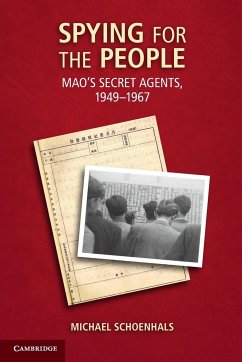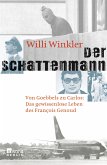Since the end of the Cold War, the operations of secret police informers have come under the media spotlight and it is now common knowledge that vast internal networks of spies in the Soviet Union and East Germany were directed by the Communist Party. By contrast, very little historical information has been available on the covert operations of the security services in Mao Zedong's China. However, as Michael Schoenhals reveals in this intriguing and sometimes sinister account, public security was a top priority for the founders of the People's Republic and agents were recruited from all levels of society to ferret out 'counter-revolutionaries'. On the basis of hitherto classified archival records, the book tells the story of a vast surveillance and control apparatus through a detailed examination of the cultivation and recruitment of agents, their training and their operational activities across a twenty-year period from 1949 to 1967.
Hinweis: Dieser Artikel kann nur an eine deutsche Lieferadresse ausgeliefert werden.
Hinweis: Dieser Artikel kann nur an eine deutsche Lieferadresse ausgeliefert werden.








